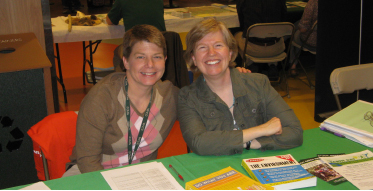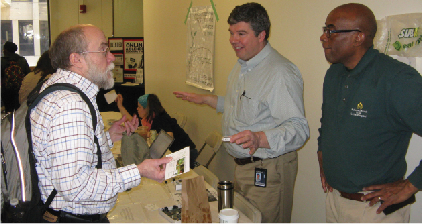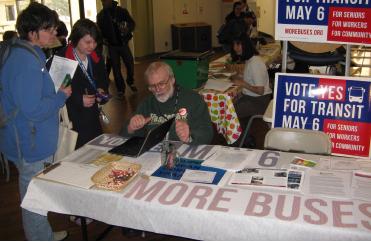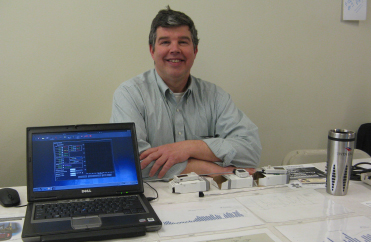WCC celebrated Earth Day in grand style on April 10 with a series of booths and demonstrations that filled the Student Center and North Plaza. Attendees were exposed to a wide variety of solutions to today’s environmental challenges.
Many WCC faculty, staff and students were involved and presented information regarding:
- Recycling
- Low Carbon Commuting
- Building healthy neighborhoods with community gardens and shopping at local Farmer’s Markets
- Powering homes with energy from the sun
- Protecting the Great Lakes
Participating organizations included: AAATA/Ride, Ann Arbor Nissan, ArborBike, BGreen, Clean Water Action, Cobblestone Farm Market, Current Motors, Gene Butman Ford, Great Lakes Fishing Commission, Growing Hope, Hudson Mills Metropark, Huron River Watershed Council, Huron Valley Group, Sierra Club, Interfaith Council for Peace and Justice, Iris Waste Diversion Specialists, More Buses Campaign, Natural Area Preservation, Recycle Ann Arbor, Southeast Michigan Land Conservancy, Suburban Chevrolet, U.S. Geological Survey, WCC Bookstore/Barnes & Noble, WCC Environmental Committee, WCC Environmental Science Program, WCC Facilities Management, WCC Healthy Lifestyle Club, WCC Recycling Operations, WCC School of Child Care Professionals, Wheels in Motion, Washtenaw Technical Middle College and the Ypsilanti Food Coop.
For more information about WCC’s involvement with preserving the Earth’s resources, visit http://sustainable.wccnet.edu.



